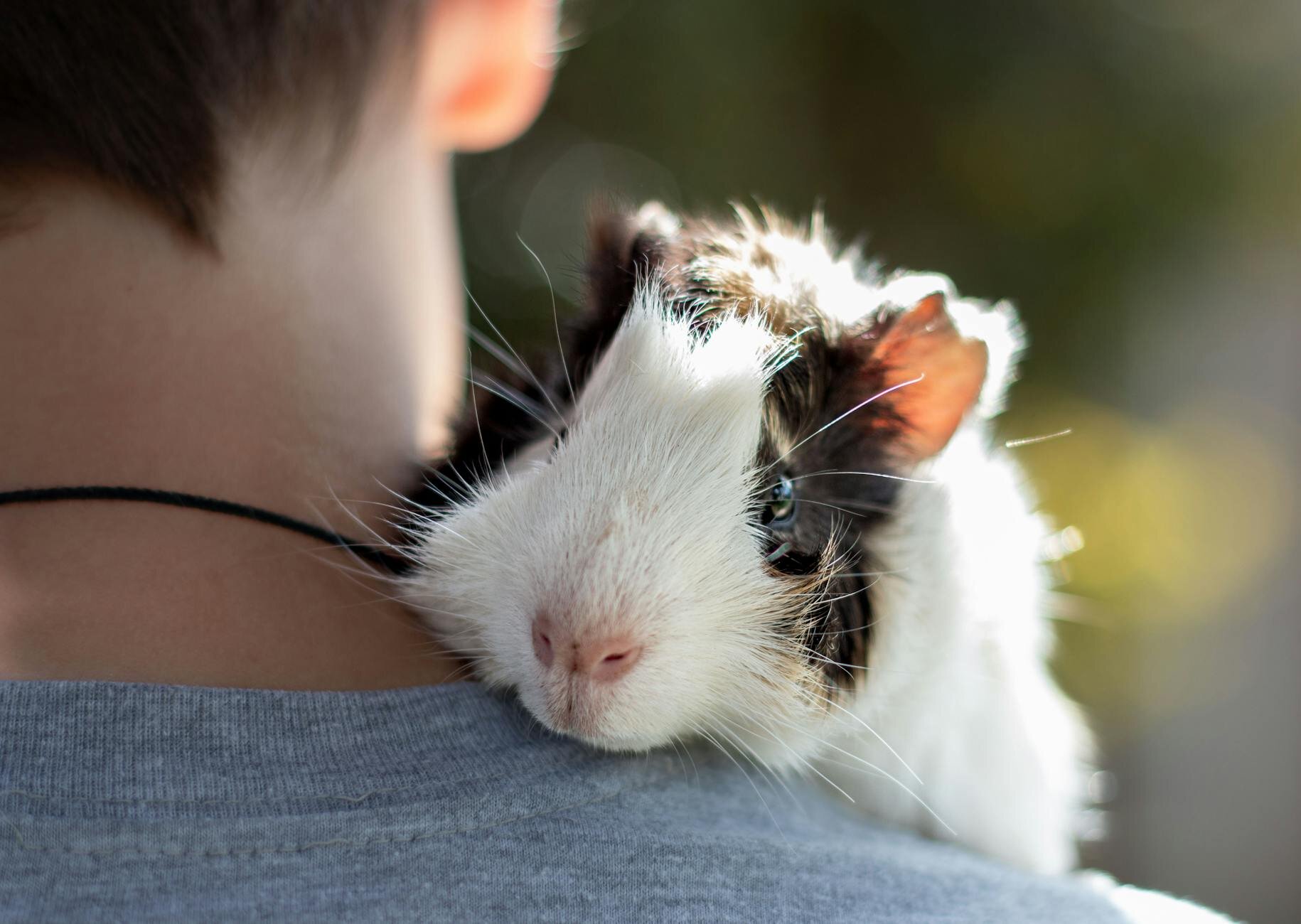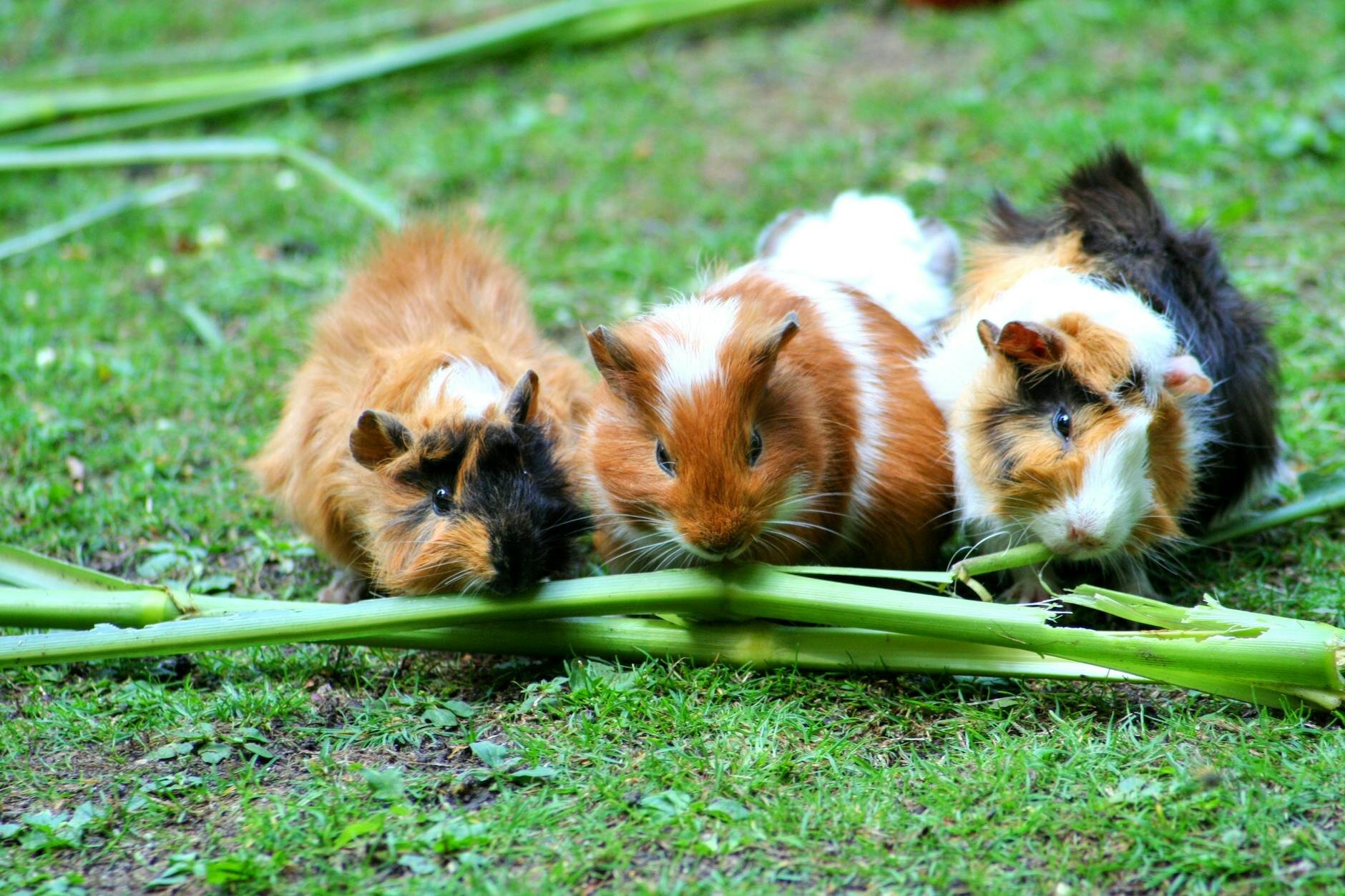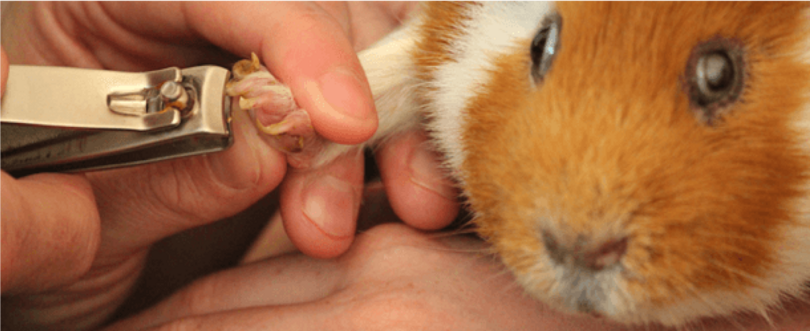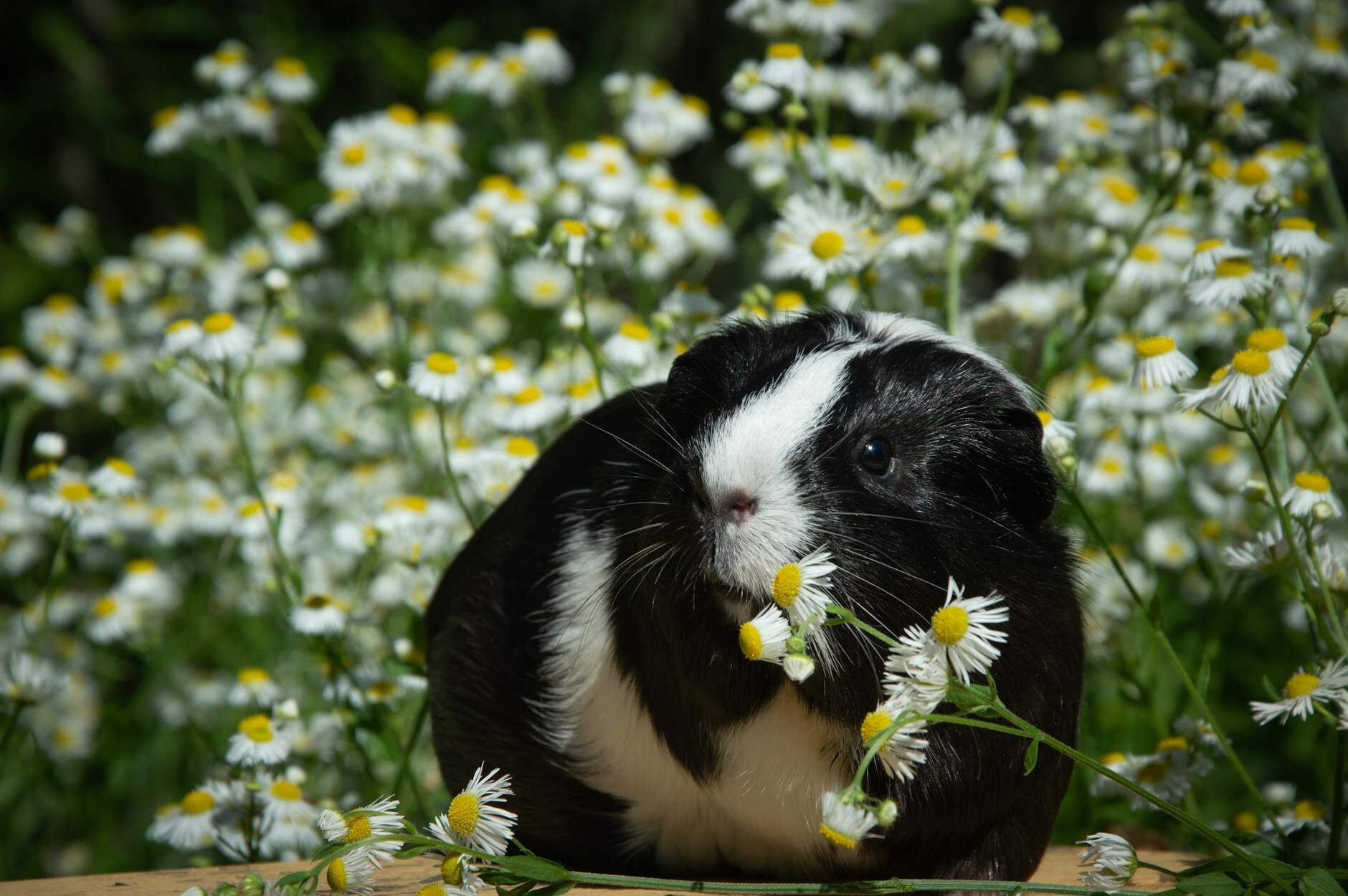Last Updated: 31/05/2025
Guinea Pig Care
"Wondering about getting a Guinea Pig? Check out our guide to purchasing diet housing grooming and parasites from our vet team."
Author: Dr Carla Paszkowski BVSc (Hons)
Reading Time: 22 minutes - medium read
Becoming a guinea pig parent is a wonderful experience. Guinea pigs, or cavies as they are more properly known, are extremely affectionate and gentle creatures. They make excellent pets for families and are a lot of fun to dress up!
Cavies are relatively easy to care for, so long as you can provide everything they need. There are a number of things you'll need to get things set up for your new furry friend. Read through our step-by-step guide to make sure you've got everything you need!
Finding your furry friend

The first thing you'll need to figure out is where you'll be purchasing or adopting your piggie from. Why not consider a Guinea Pig Rescue Centre? There are scores of abandoned cavies looking for homes throughout Australia, and adopting a pet in need is hugely rewarding.
It's important to be aware that guinea pigs have a lifespan of 4-8 years, so they aren't a short-term commitment.
Make sure they aren't lonesome

Guinea pigs are extremely social herd animals, and become depressed and anxious if housed by themselves. Companionship is extremely important for these little guys, so always aim to adopt a pair together.
To make sure you don't end up with any unwanted pregnancies, try to adopt two of the same sex. If you adopt two males, they will be more likely to get along if introduced at a young age. You can also adopt desexed guinea pigs, particularly from rescue centres, or get a guinea pig desexed yourself at your local specialist vet.
Did you know? Guinea pigs should never be housed alone, as they are herd animals (just like sheep or cattle!) and can suffer greatly if they don't have companionship.
Housing
The next step involves finding an appropriate hutch to house your piggie in. Unfortunately, many people still assume that guinea pigs should be caged at all times and don't require much space. This is false.
Guinea pigs require plenty of space to exercise (the more the merrier!), and should be given some time each day to come out and explore (so long as they are protected from potential predators). Many people let their cavies wander around a dedicated room in their house, or even give them free-range of some areas. (However guinea pigs aren't easy to litter-tray train like rabbits).
When looking for an enclosure such as a hutch or a cage, minimum size will depend on how many cavies you will be housing. The minimum dimensions for one guinea pig is 1m long x 0.5m wide x 0.25m high (as set out by the RSPCA). Two guinea pigs will require double this space.
Bedding for the hutch is another important part of setting up your piggie home. Cage bases should be lined with newspaper and soft grass hay to prevent foot injuries. This bedding should be changed as needed to avoid ammonia build-up; typically once a day is best.
Avoid sawdust or wood shavings, as these can lead to respiratory issues. Likewise, straw can cause injuries and does not absorb urine well.
It is worth fly-proofing your guinea pig home with fly screen or mosquito netting, as cavies are prone to flystrike.
Cavies are also dangerously prone to heat stroke. Originating from the cold mountains of South America, guinea pigs are not at all accustomed to hot, tropical Australian weather. Always make sure adequate shade is provided - you can provide little hideaway boxes or igloos if need be. On hot days, bring your piggies inside or provide frozen water bottles so they can cool themselves down.
Diet
A guinea pig diet should be set out as follows:
- A strong base of Grass and/or grass hay as the majority of the diet
- Fresh leafy green vegetables and herbs daily
- A dietary source of vitamin C
- Commercial mixture of high-quality pellets in moderation
- Access to fresh water at all times.
For the grass / grass hay portion, a constant supply should be provided. Cavies particularly love fresh grass, which makes them handy lawn mowers! They are hindgut fermentors, which means they need to be almost constantly eating. Species of grass that are suitable include Timothy, Wheaten, Oaten, Pasture, Paddock, Ryegrass, or Meadow. Lucerne (alfalfa) is ok for pregnant or juvenile guinea pigs, but is a little too high in calcium for adult piggies - so it's best to avoid in these guys.
Fresh leafy green vegetables and herbs that are great for guinea pigs include cabbage, celery, broccoli, carrot tops, dandelion, parsley, dark leaf lettuce, asian greens, coriander, basil, and dill. Approximately one cup per day is ideal for one adult piggie.
For Vitamin C, you can provide a Vitamin C supplement, or provide a natural source such as citrus fruits, capsicum, strawberries, or kiwi fruit.
Pellets are a great way to give your cavy some extra nutrition in addition to grass and veggies. Always go for a high quality pellet such as those made by Vetafarm, Peter's or Peckish.
In terms of fresh water, it is ideal to have a heavy water bowl (such as one made of ceramic) as guinea pigs can be a little messy and tip over their bowl. For this reason, it is also handy to have an upright bottle as a backup.
Grooming

It's important to keep an eye on the length of your guinea pig's toenails. They can become overgrown and lead to painful conditions if not clipped. You may wish to have them clipped at your vet, or you may like to learn how to do it at home with your own pair of nail clippers.
Long-haired guinea pigs will require regular brushing to ensure the coat is kept free of burrs, twigs, dirt, and tangles.
Parasite Prevention
While cavies don't often get worms, they are prone to mites and lice. These pesky critters are the number one cause of itchy skin in guinea pigs.
It is worth treating any new piggies with a product containing low dose Selamectin such as kitten Revolution, kitten Evicto, or kitten Neovela. These products are safe for use in cavies; however always ask your vet with regards to dosing based on your cavy's weight.
Keep them Stress-Free

If you have children under the age of 8, a guinea pig is probably not the best pet for your family. Guinea pigs are notoriously gentle, and are often given to young children who mean well, but can cause a lot of harm. Guinea pigs stress very easily, and can suffer medical conditions due to the stress of being around unpredictable young children.
Best to leave guinea pig ownership to when your kids are over the age of 8, to ensure a happy child and a happy pet.
Further Reading
Want to read more? Check out our other articles:
History
Our experts continually monitor the health and wellness space and we update our articles when new information becomes available.
26 May 2025
Edited by Dr Carla Paszkowski BVSc (Hons)Dr Carla Paszkowski BVSc (Hons)
Veterinarian
Dr. Carla graduated from the University of Queensland in 2013 with a Bachelor of Veterinary Science and worked for a number of years in small animal clinics across South East Queensland. While Carla enjoys most facets of clinical veterinary work, she holds a special passion for feline medicine, pocket pets, and nutrition.

